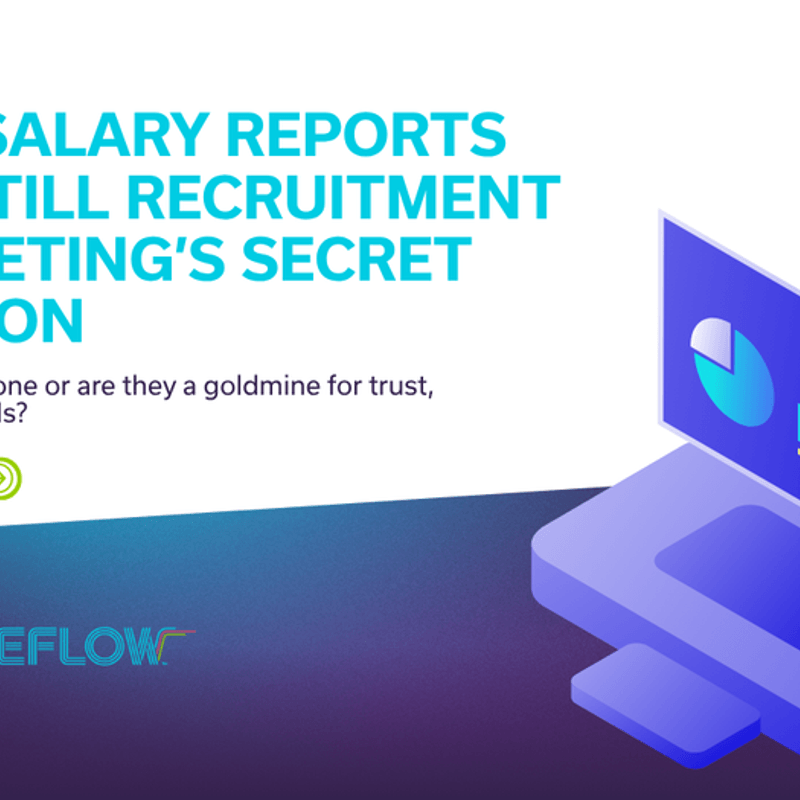
What recruitment marketers need to know about third party cookies

Share
First things first
What’s a first party cookie?
Generally when we think of cookies, we think of standard cookies. These cookies keep you logged in to websites or help personalise experiences.
Example: A user visits your recruitment website. As the page loads, some script (code) that you have included behind the scenes on your website runs. To make that script come to life, a ‘cookie’ is placed on the browser of the user that start to track their behaviour. The user applies for a job and logs in, the cookie stores the session and when the user revisits the website they remain logged in. Because the users behaviour (every page they click on) is tracked and we know their name, we might start to recommend content/jobs to them and personalise our messaging. We might also remember jobs they started the application for but never finished, when they return to the job we might prompt them to complete the application.
This is all done via first-party cookie tracking and is generally good for user experience as we’re remembering crucial bits of information to improve the users enjoyment levels when using the website
So, what’s a third-party cookie?.
Third-party cookies are ones which operate on a website (let’s use acme-recruitment.com) but the domain which operates the cookie is entirely different.
Example: A user visits your recruitment website. As the page loads, a script is run and throught the planting of a first-party cookie, behaviour is tracked. At the same time, a third party cookie from ads.adnetwork.com also starts tracking the user's behaviour, as the website has allowed this to happen. This third-party cookie stays with the user over the rest of the internet.
Other websites on the internet then have adspace available (designed space around the web page, or inline with the text). So when the user visits a news site, such as the Guardian, an ad for acme-recruiting.com appears on the screen for the user. What’s happened here is that that third-party cookie was being placed by an ad network and then tracking that user around the internet, outside of the website they originally visited.
This example is referred to as retargeting and is really common.
So, what’s the problem?
First party cookies, in general have no problems, although we’ll come back to that later.
Third-party cookies, however, create a huge amount of mistrust for websites. Users are becoming increasingly concerned about their data and how advertisers & big tech companies are using their data. Third-party cookies can essentially track all user behaviour (they don’t track key clicks, so they aren’t a risk to passwords) online, so all websites visited and the pages within those websites that the user has viewed. This allows advertisers to monetise users without them even knowing about it, effectively selling your ‘profile’ to the highest bidder without you knowing.
Tech companies like Apple have also in the past used these types of cookies to share data between the apps you use on your phone. This means that advertisers can target ads at you for a new fitness app because you’ve been hitting the fast food delivery apps too hard. You don’t know this is happening, but it is and it’s big business.
It’s this type of malicious and shady dealings that’s seeing tech companies move away from third-party cookie tracking.
Google are taking a stand
Google have announced that in 2023, they will block third-party cookies from Chrome, the worlds most commonly used web browser.
This is significant because Google themselves rely heavily on third-party cookies for their double click network (Google Adwords/Retargetting).
As of yet, there’s no official replacement for them, but Google have been clear that they are looking to innovate, rather than circumnavigate the issues.
What does it mean for recruitment marketing?
If you advertise, third-party cookie data allows you to learn a lot about your websites visitors. You can find out all of the websites they visit (including oyur competitors), jobs they may have viewed on other sites and interests they have. This can also be used for client data also, so it’s clearly valuable information to have on your website visitors.
When you have this data, you can create ad retargetting lists to send to your visitors, or other visitors who may have never been to your website, but fit the criteria due to tracking.
Example: User visits your website and checks out a project manager job. Later that day, they are on the Guardian website and see an add for your project manager job with ‘still interested in applying for this job’ as the creative content. This advert was made possible by third-party cookies, as the user is now on the Guardian and not on the acme-recruitment.com website.
If you don’t do any of this and you want simple tracking, then you might not feel the heat. If you like and collect more information on your users, then you will be impacted heavily.
I thought it relevant to include LinkedIn within it’s own section here, and will likely expand on this in the future.
LinkedIn use third-party cookies quite aggressively. They use it for ad tracking and behavioural tracking and it’s common to see third party LinkedIn cookie tracking on recruitment websites.
This will end come 2023, which leaves a lot of questions around how LinkedIn will allow recruiters to remarket to candidates through their platform.
It’s not just candidates visiting your own website that will be hit by the change to cookies, but those that are on LinkedIn and see your content (jobs/profiles/articles etc) on that platform. LinkedIn publish their cookie table publicly, and their advertising cookie section is extensive to say the least!
In practice this means less visibility of ads for candidates around the internet and potentially less ‘eyes’ on your brand.
Ready to grow
with the Flow?
Whether you want to refresh your recruitment website design or take on several global sites, we have the experience and expertise you need.





